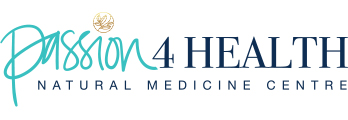Affected By Hayfever or Allergies? Enjoy Spring Again
It’s spring, and nothing says “winter is over and summer is coming” more than clear blue skies, the spring breeze, blooming trees and, hayfever and allergies.
Are you affected by seasonal hay fever and allergies? A report published by CSIRO in 2001 indicated that over 40% of Australian’s aged 20-44 suffer from hay-fever and nasal allergies. With the increasing number amount of toxins in the air, this will not has gone down in the last nine years, making spring time a season that quite a few of us would prefer to bypass.
What Are The Symptom of Hayfever
There are a number of common symptoms of hayfever that most people will immediately recognise. Who could mistake:
- the runny, sometimes streaming, nose;
- tickling in the nose, throat, ears and roof of the mouth;
- uncontrollable bouts of sneezing or coughing;
- blocked nostrils and ears;
- reddened, puffy, watering, itchy eyes;
Like most auto immune conditions however, the symptoms don’t just stop at the nose and eyes. Live Blood Analysis typically shows high levels of inflammation and excessive activity of white blood cells when affected by bouts of hayfever. For those prone to other auto immune conditions, i.e. rheumatoid arthritis or IBS, this can exacerbate these conditions.
What Are The Treatment Options
When hit by a bout of hay fever most people head down to the chemist and grab anti-histamines. While these will mask short term symptoms, like most things, prevention is the better strategy. They key to long term relief lies in rebalancing the immune system. Fortunately, this is an area where natural medicine excels.
Look at the Bowel
So often, fixing our bowel and digestion can offer dramatic results on overall health. Our immune function in general and hay fever in particular are no exception. This is not surprising when you consider that 80% of our immune function comes from our gut. Studies undertaken on humans showed that increasing the levels of certain strains of friendly bacteria in the bowel through daily supplementation, led to a decrease in the severity of hay fever symptoms(Ivory). The Shirota strain of probiotic organisms, that were used in this study, are one that is not typically found in yoghurt but is used in making Yakult, or in some probiotic supplements, making supplementation a necessity in this area.
Increase Zinc Levels
We talk about the importance of zinc regularly and it’s importance to healthy immune function cannot be understated. Animals that consumed inadequate zinc for as little as one month saw a whopping 30-80% drop in the effectiveness of their immune system(Fraker). Zinc deficiency is a common finding in our clinic and in the wider population. Some studies have shown that as many as 75% of the adult population of western nations are deficient in zinc.
Dietary sources of Zinc include whole grain products, nuts and seeds, and fish. Supplementation may be necessary where deficiencies exist or in those where alcohol is regularly used.
Short Term Options
Both re-colonising intestinal flora and addressing any zinc deficiencies require time to work. Once again, natural medicine has a number of options for symptomatic relief of hayfever.
Vitamin C supplementation is beneficial in almost all respiratory conditions and the symptoms of hayfever are no exception. We mention vitamin C though, and most people say “I tried vitamin C and it didn’t work”. The most common reason for the ineffectiveness of vitamin C is that insufficient is used. Therapeutic benefits of vitamin C are not seen until doses of 2,000 mg per day are used. The supermarket 500mg variety just doesn’t cut it and if you choose to use vitamin C you should obtain from a practitioner.
A herbal compound Perilla, can be thought of as nature’s very own anti histamine. In studies Perilla extract, a component regularly used in herbal hayfever preparations, was shown to inhibit the bodies production of histamine providing a similar result as pharmaceutical anti-histamines(Shin). Perilla can be found in many common, herbal, hayfever preparations in health food stores, or contact our Nutritionist for a practitioner strength product.
For those that enjoy the use of essential oils, the use of anti-microbial essential oils are a powerful way to combat the short term effects of hayfever. Oils such as eucalyptus oil, peppermint, lavender and thyme can be diffused using a standard diffuser or do a steam inhalation once or twice through out the day. Be careful when using oils such as thyme in a steam inhalation, it is better to start with less than more.
Interested? Want to Know More?
Natural and alternative medicine has options to allow you to enjoy, not dread the spring time. If you’re interested and want to know more contact us on 07 3800 1993 and ask about our Free Zinc Testing offer.
Sources For This Article Include:
- Australian Society of Clinical Immunology & Allergy, “What is Hayfever (Allergic Rhinitis)” 1st June 2010. http://www.allergy.org.au/content/view/119/133/ (16th August 2010)
- Cathcart, R. E. “Vitamin C, titrating to bowel tolerance, anascorbemia, and acute induced scurvy.” Medical Hypotheses 7 (1981):1359-1376
- CSIRO, Australia, state of the environment 2001: Atmosphere. Volume 6. Collingwood: CSIRO Publishing
- Fraker, P. J. “The dynamic link between the integrity of the immune system and zinc status.” Journal of Nutrition 130.5S (2000):1399S-1406S
- Kirschmann, John D. Nutrition Almanac. 6th Edition. New York: McGraw Hill, 2007.
- Ivory, K et. al. “Oral delivery of Lactobacillus casei Shirota modifies allergen-induced immune responses in allergic rhinitis.” Clinical & Experimental Allergy. 2008.
- Shin, T. Y. et al. “Inhibitory effect of mast cell mediated immediate-type allergen reactions in rats by Perilla frutescens.” Immunopharamcology and Immunotoxicology. 22.3 (2000):489-500
